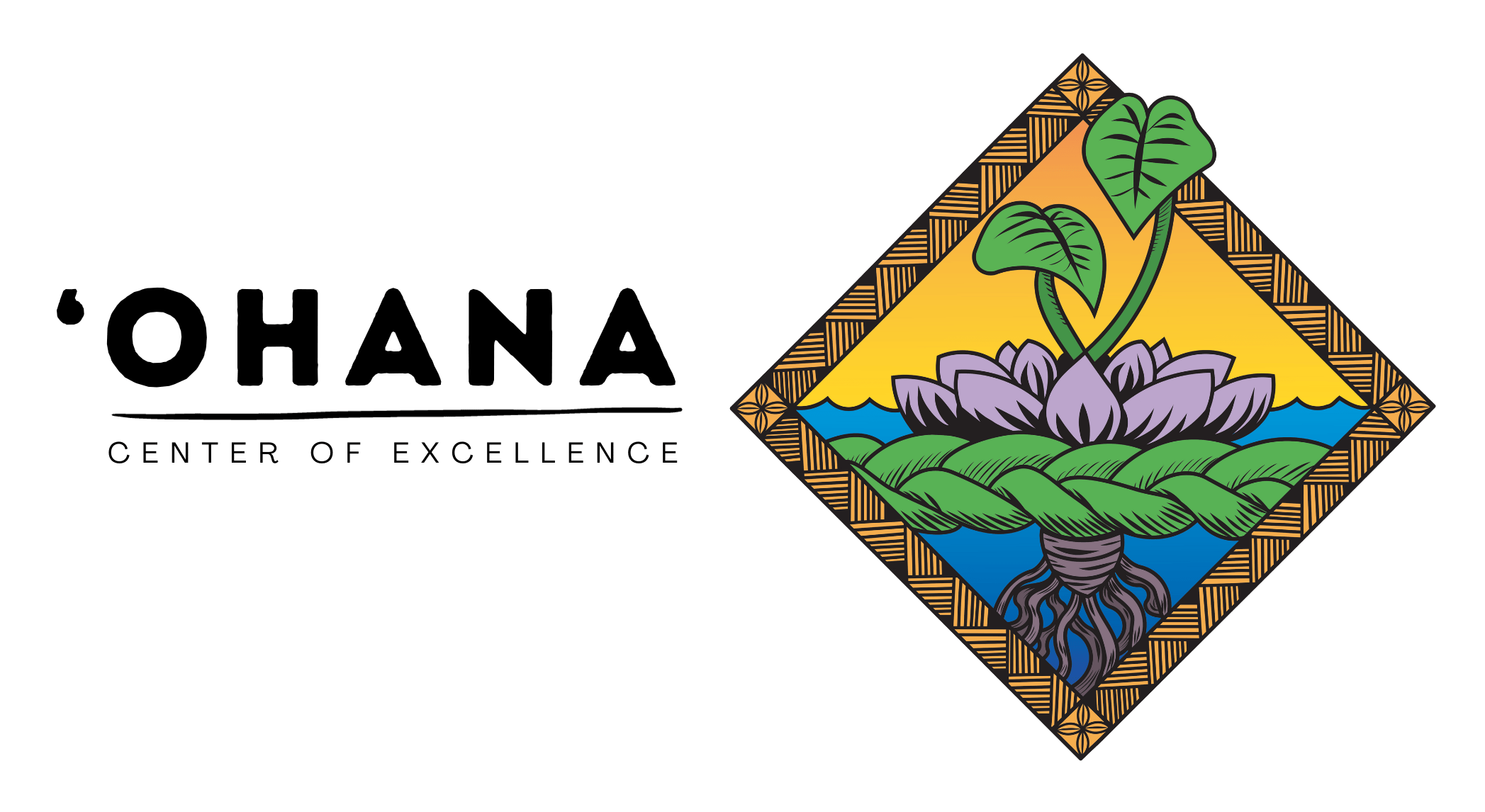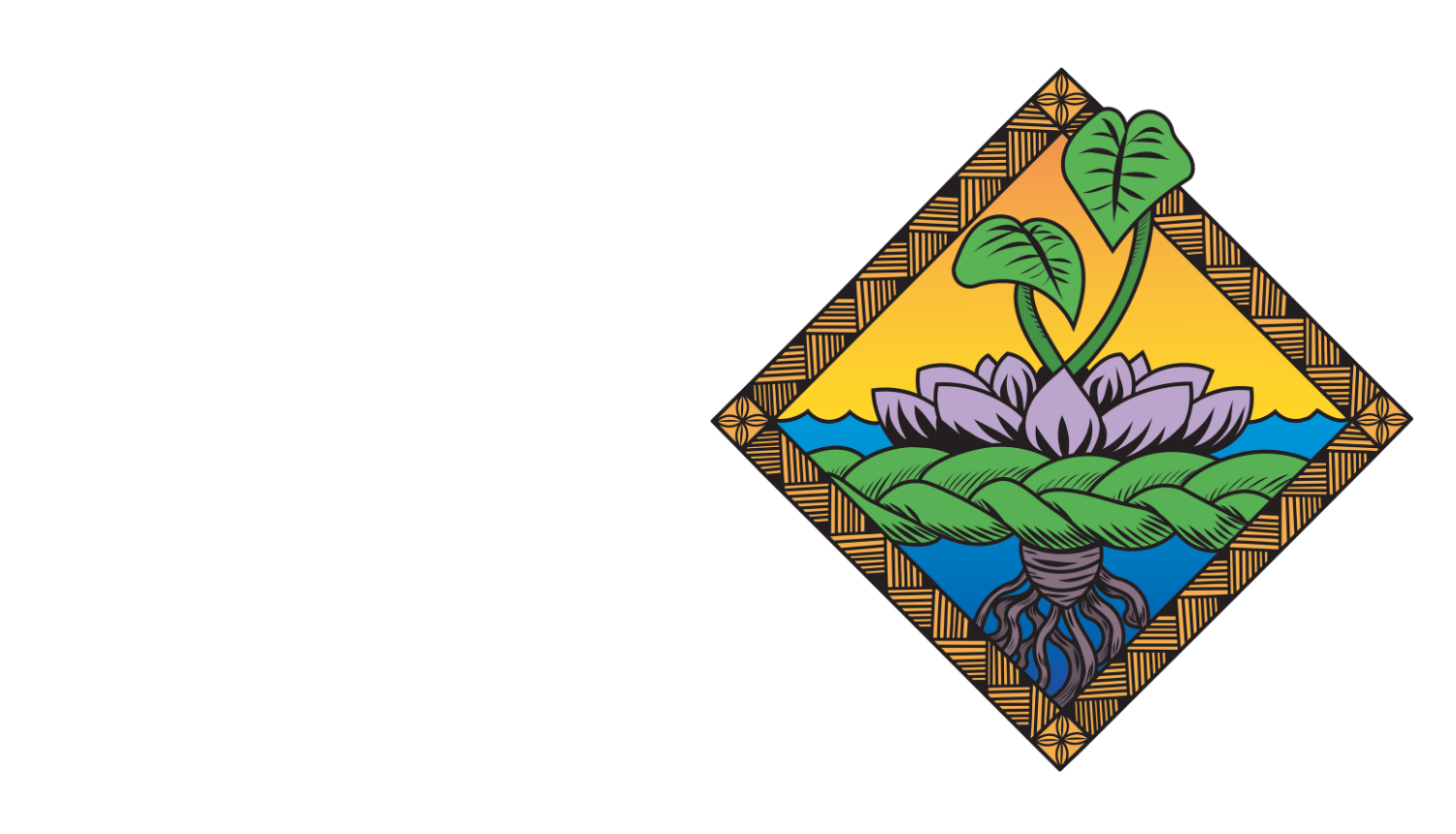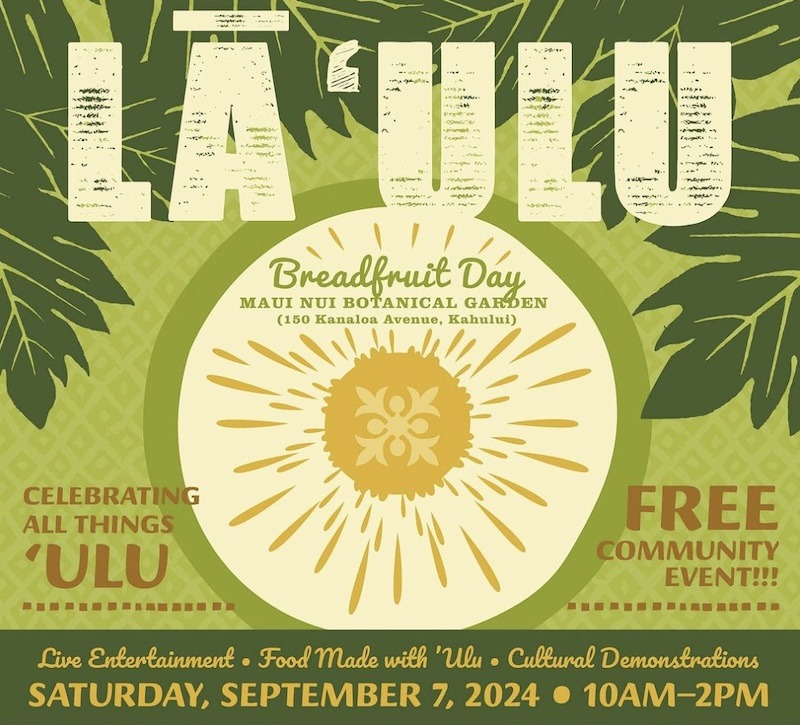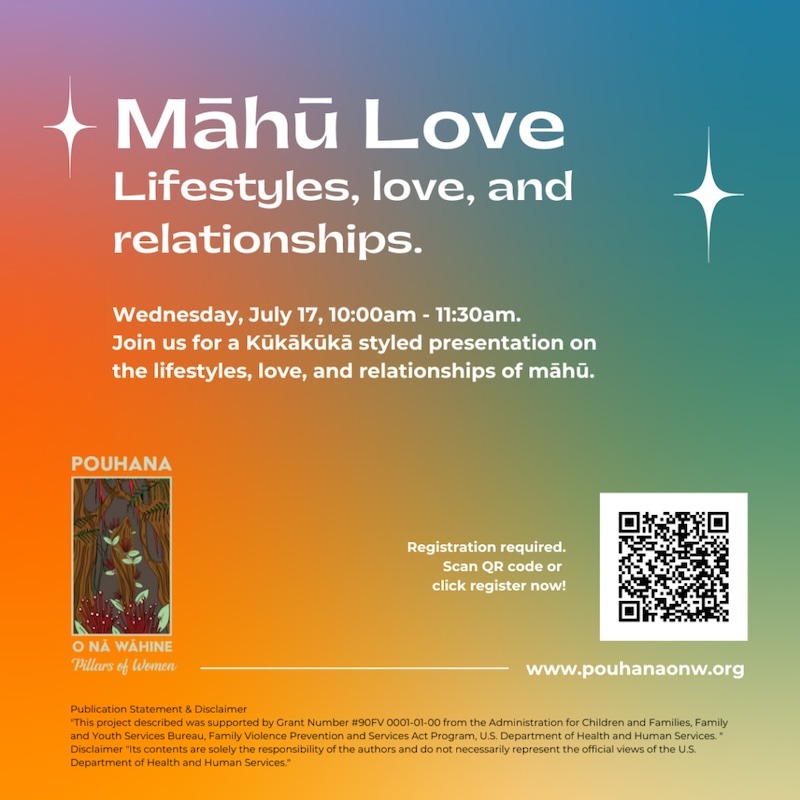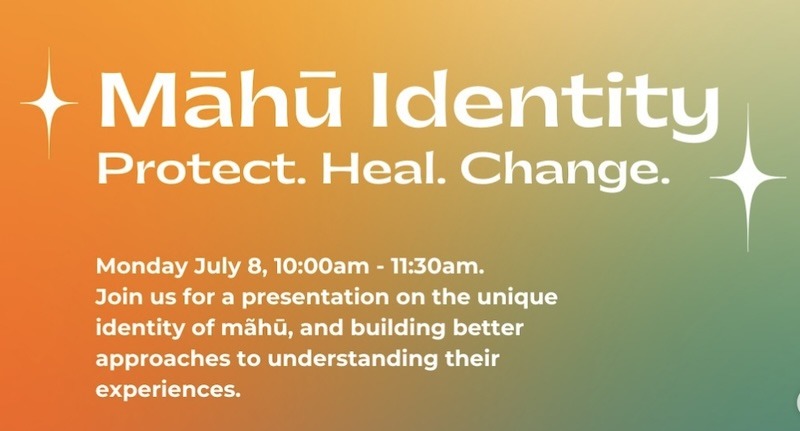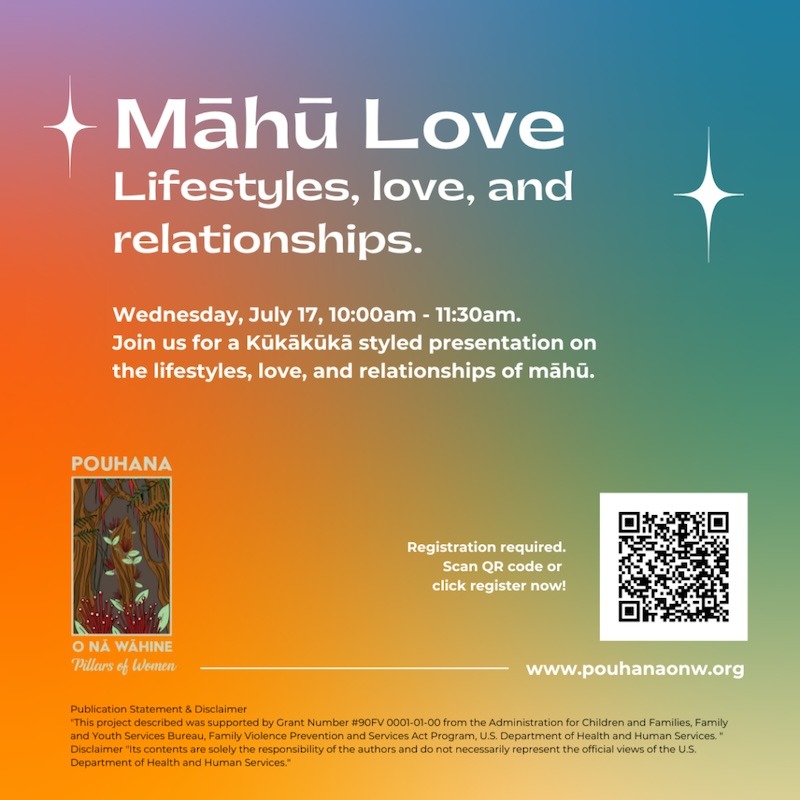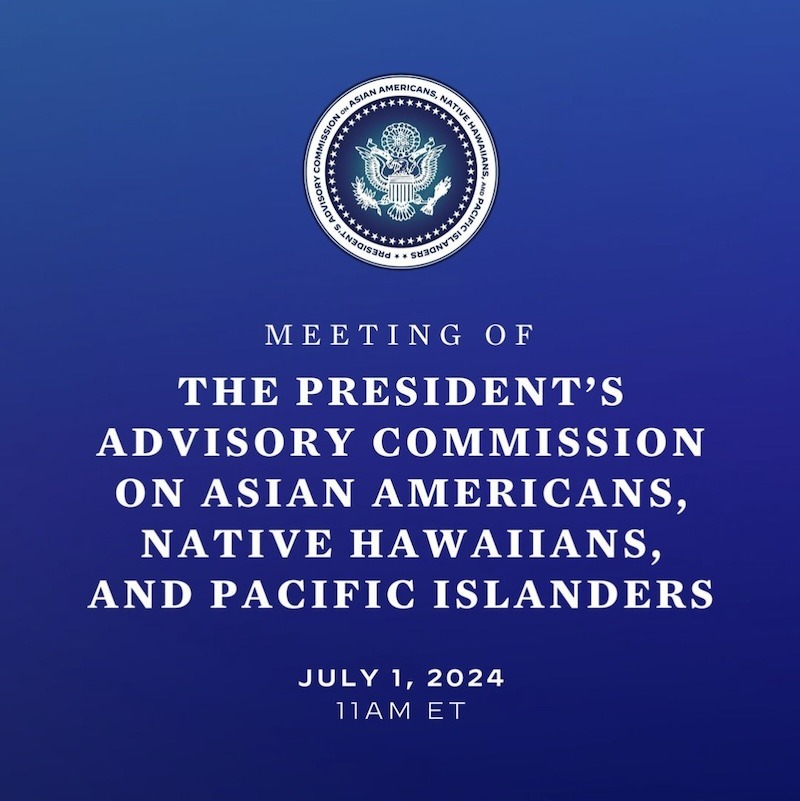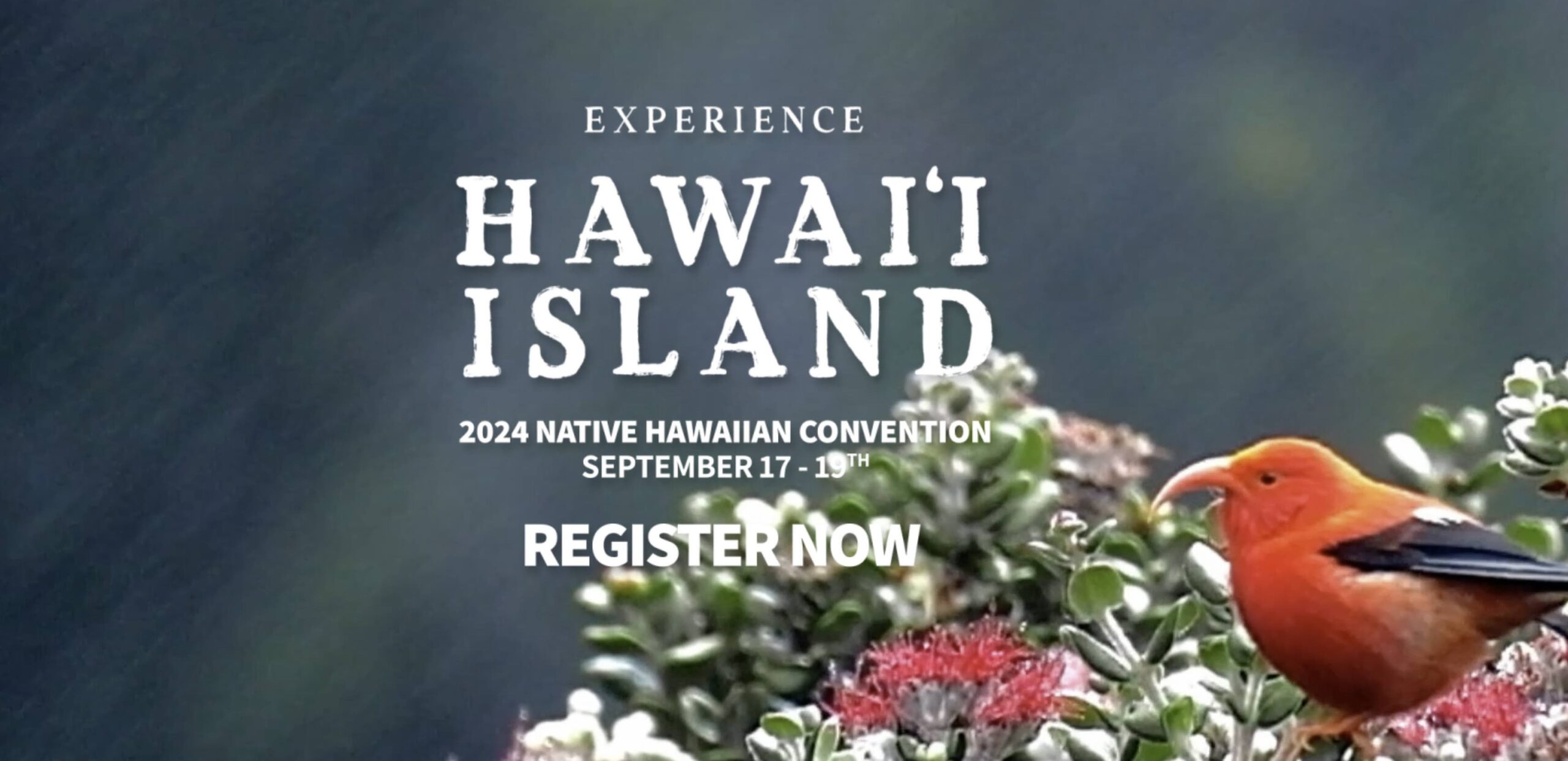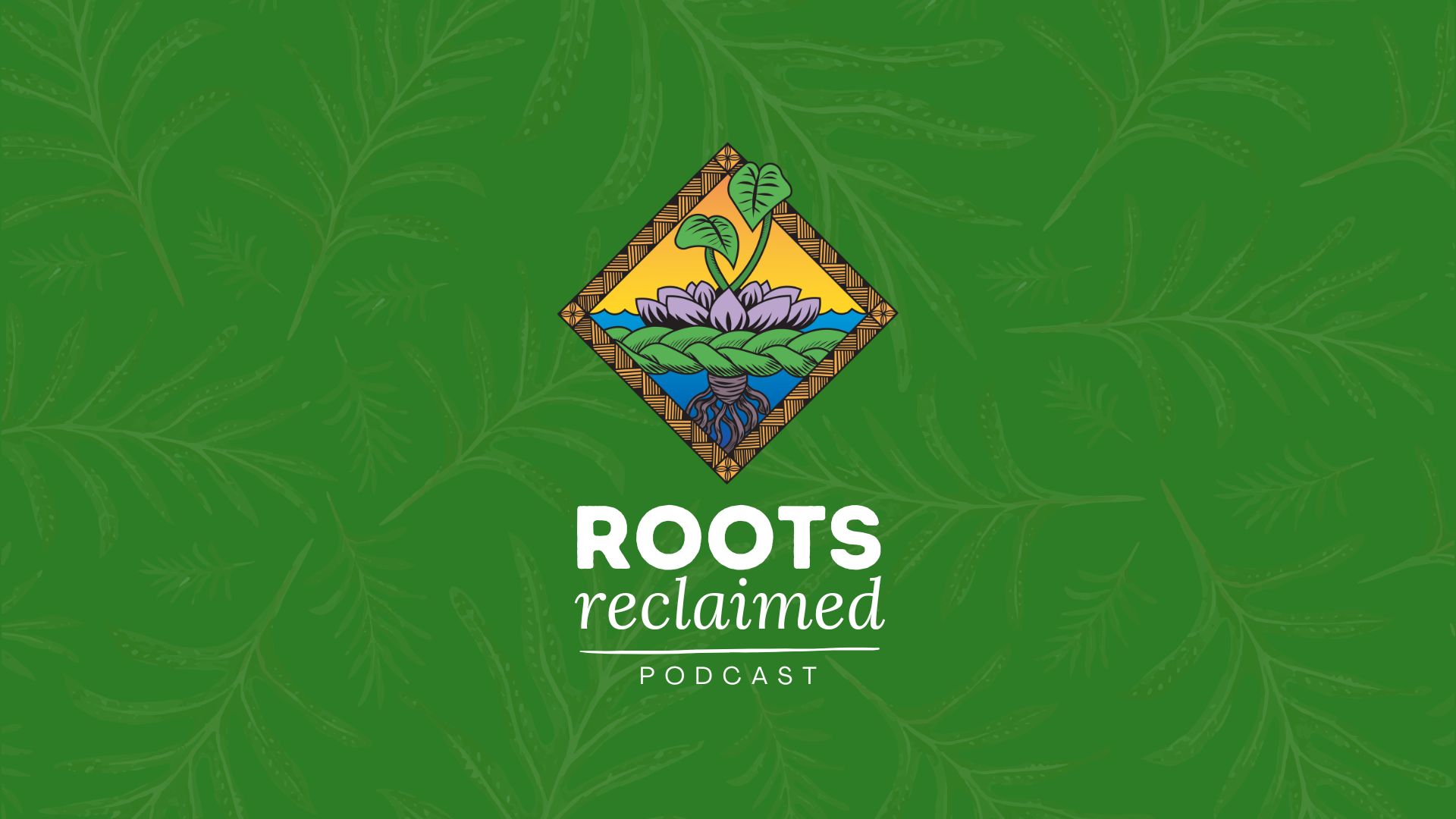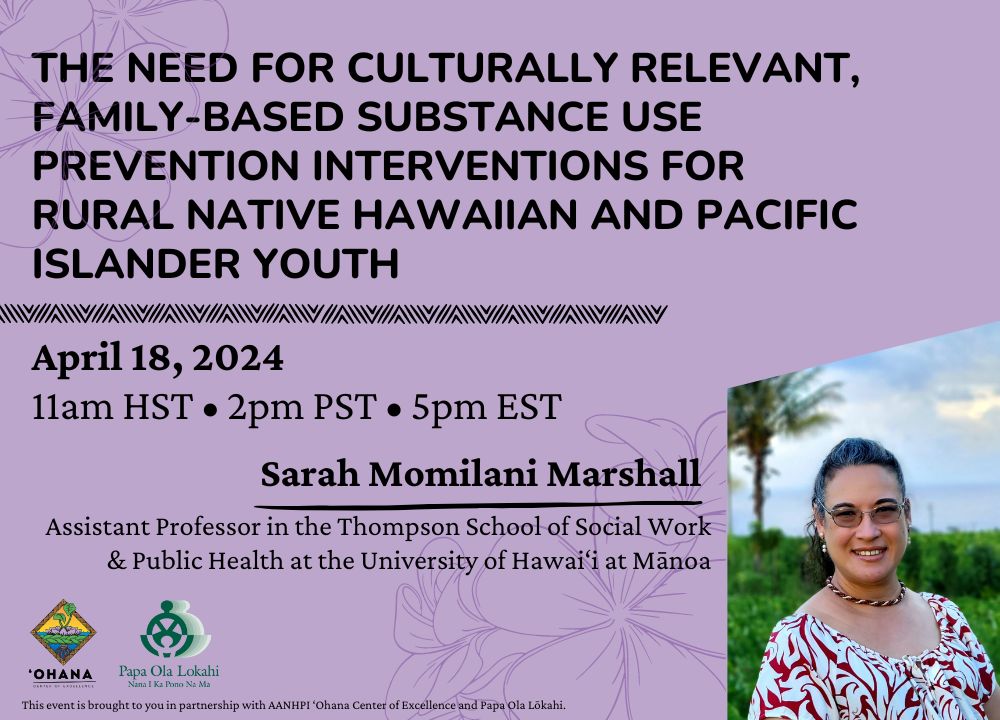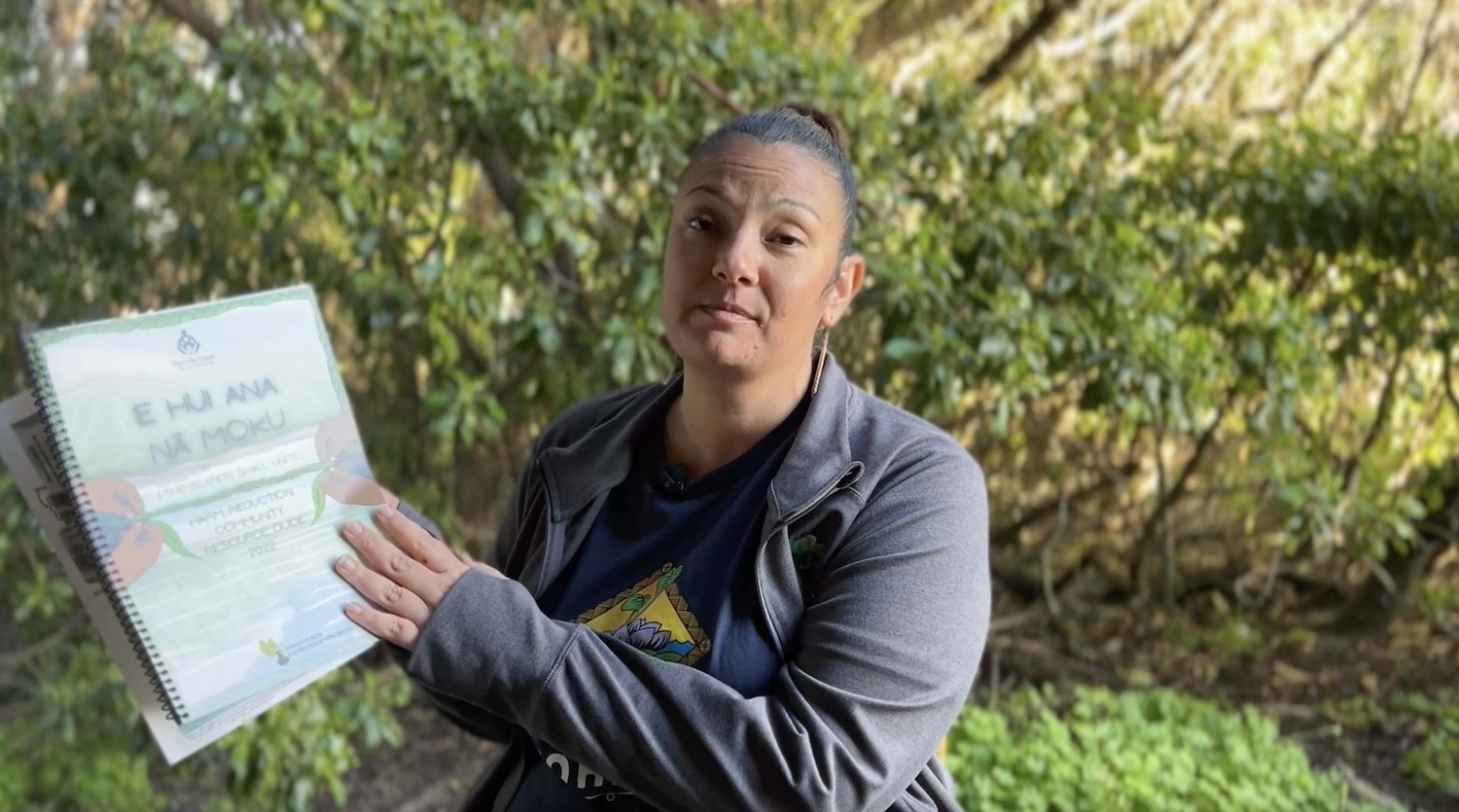Lā ʻUlu (Breadfruit Day) brings the community together to celebrate all things ʻulu at Maui Nui Botanical Gardens! Learn from experts about ʻulu growing, propagation, varieties, harvest, post-harvest handling, using fruits at different stages, and ideas for recipes and cooking. Trees of several different varieties will be for sale. Representatives from Hoʻo ʻUlu Ka ʻUlu, Agroforestry Net, the University of Hawaiʻi, Hawaiʻi ʻUlu Cooperative, Kahanu Garden and Preserves, The Breadfruit Institute, and many others will be there to answer your questions.
Think you don’t like breadfruit? Come for a taste of ʻulu and find out. Culinary offerings from local chefs will be small and $9 or less, plus recipe-ready frozen ʻulu, ʻulu flour, and other products for sale. Free hands-on cultural activities for keiki and makua: learn to make lei with malo ʻulu (leaf bracts), try your hand at ʻulu maika, make poi ʻulu, or watch ʻulu kapa being made.
This free community event is made possible in part by Maui Green and Beautiful, Savage Farms Wellness Center, Hawai‘i ‘Ulu Cooperative, Maui Breadfruit Company, and KPOA. Free parking at War Memorial Stadium.
For more information, visit mnbg.org or call 808-249-2798.
